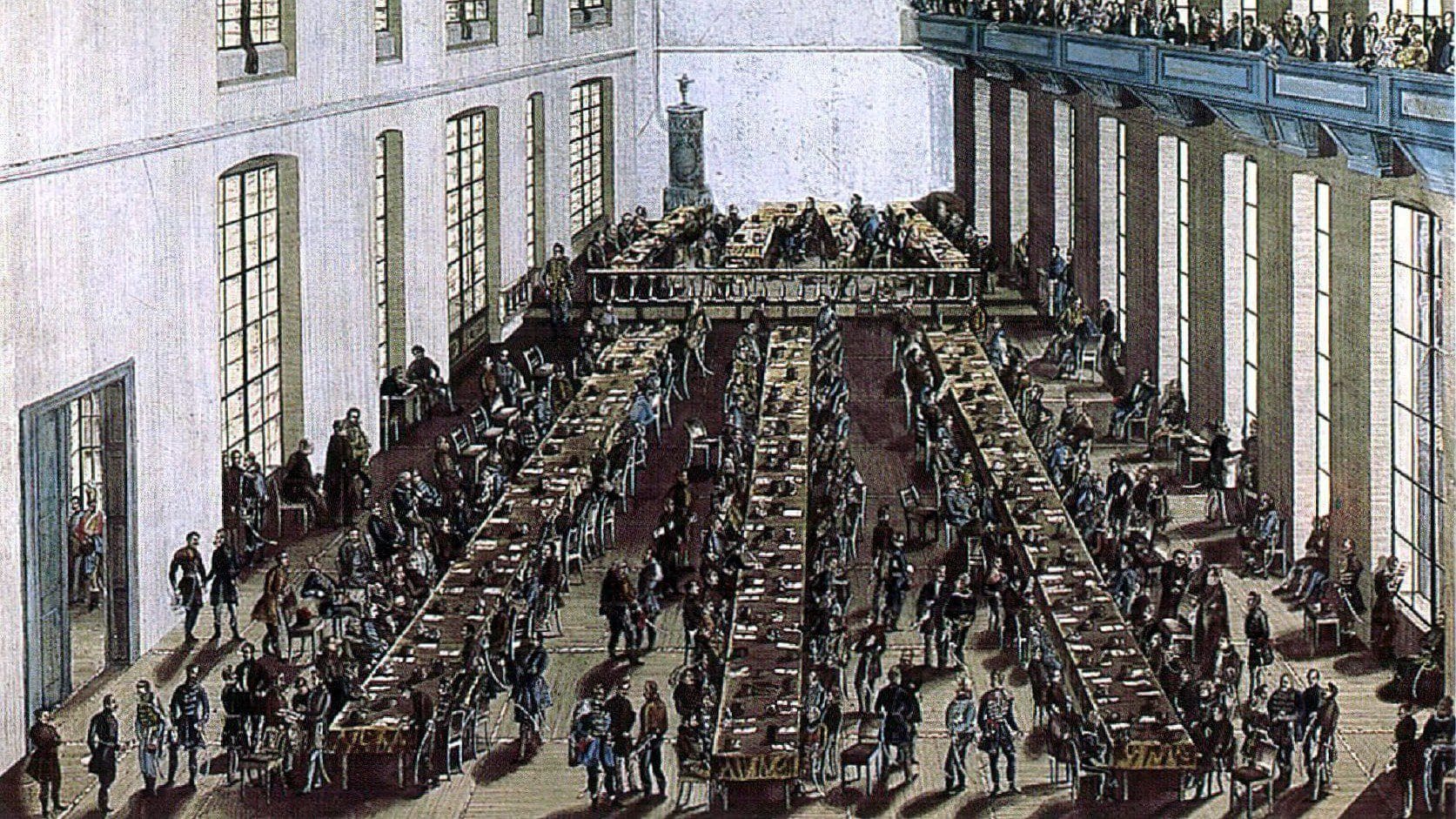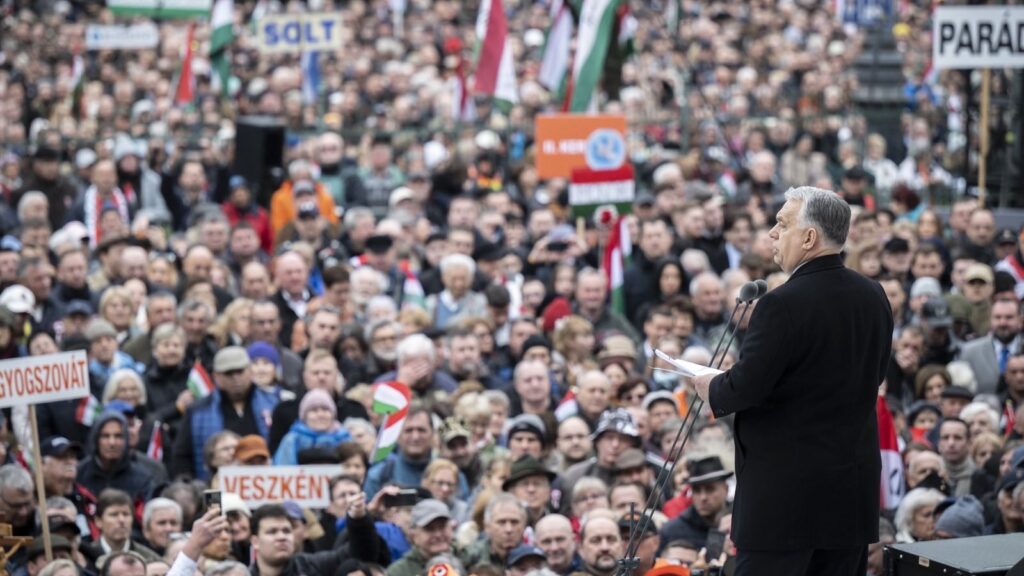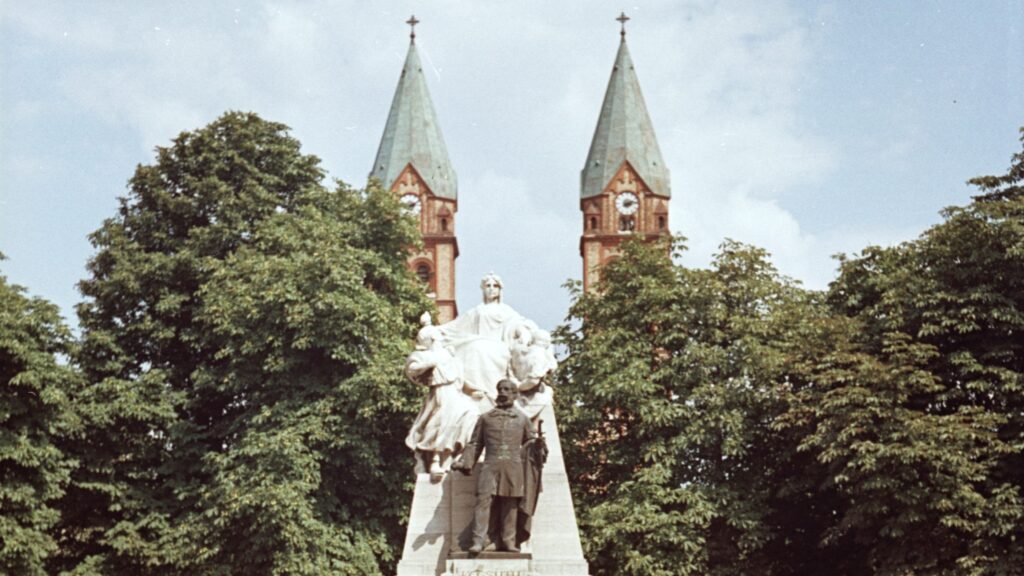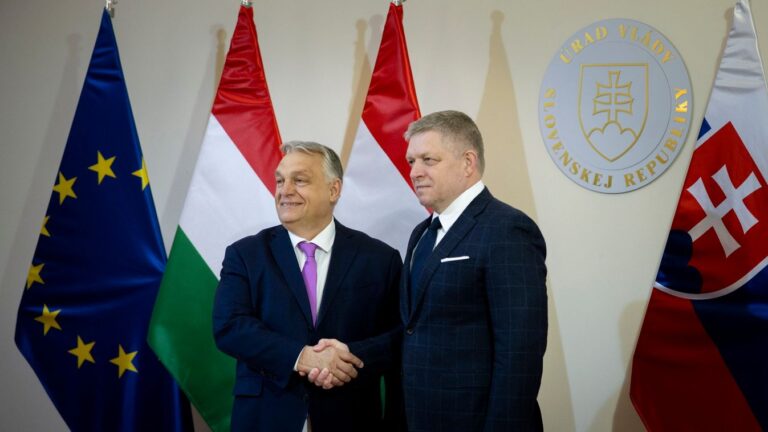This essay does not concern itself with the ideological debates linked to foreign policy schools of thought, since this segment of political philosophy was still rudimental in the era it discusses. At the time, Richard Cobden and John Bright had only recently outlined the nascent tenets of liberal internationalism. The ideas of John Smith about free trade, as well as Thomas Hobbes’, and Machiavelli’s thoughts about dealing with foreign nations were not yet examined in the light of foreign policy. Furthermore, Emmanuel Kant’s idea of ‘perpetual peace’ (‘ewiger Friede’) was entertained as a utopian notion, rather than something to be implemented. Foreign policy was rather shaped by bureaucrats, like Metternich, who sought to preserve the peace and stability created by the Peace of Westphalia (1648) and the post-Napoleonic Congress of Vienna (1815).
The Liberal Perspective
The liberal faction of Reform Era Hungary was generally idealistic and ideological in their views on foreign policy. The main organ of this camp, Pesti Hírlap was edited by Lajos Kossuth, the political and intellectual leader of the liberals. Kossuth looked at foreign nations through an ideological lens, judging them based on how much those states met liberal and proto-democratic standards. In his paper, he regularly criticised Louis Philippe, the French king, whom he deemed too authoritarian. For instance, in 1841, he criticised the French prime minister, Francois Guizot, who allegedly maintained that the King cannot be personally responsible for wrong decisions. Kossuth reminded his readers that Guizot had voted for expelling Charles X in 1830.
As mentioned in our introductory article, when the 1848 Revolution in France ousted the King, the liberal opposition immediately demanded that Austria recognise the new, republican government. Furthermore, it was also briefly noted that, in 1848, the liberal Opposition Party vetoed the military budget, which was aimed at suppressing the anti-Habsburg uprisings in Northern Italy. Kossuth, in his speech, laid out the condition of ending the veto: the emperor giving constitution to these provinces. In 1849, Kossuth also wrote a series of articles denouncing the Habsburg rule of these territories, describing even the nominally independent Parma, Modena, and Tuscany as Austrian ‘vassals’.
Of course it would be unfair to set Kossuth and the liberals as naïve ideologues, completely devoid of realism.
The moral and political support offered to the French and Italian revolutionaries was also a tactical move.
The liberals wanted to boost foreign support for themselves, and for the semi-independent post-Revolutionary Hungary as well.
All in all, the Reform Era liberals were driven primarily by ideological considerations, siding with countries and forces which purportedly met their moral and political standards. At the same time, they also calculated that the nations sharing the same set of values can form an alliance. In this regard, the liberals’ outlook was similar to modern liberal internationalism.
The Conservative Outlook
The Reform Era conservatives—especially the Young Conservatives led by Aurél Dessewffy—on the other hand had a different approach to foreign policy. First and foremost, conservatives accepted the fact that Hungary and Austria had a common foreign policy. Therefore, they tended to be able to see European events not only from the point of view of Hungary but also of that of the common realm.
Aurél Dessewffy, in one of his articles, condemned Kossuth for writing negatively about King Louis Philippe. He argued that foreign policy must be dictated by national interest, rather than by ideology. Dessewffy also argued that stability and peace in Europe was of outmost importance, and for him, the July Monarchy of France (1830–1848) was the main guarantor of this: ‘His (of the French King) political system can be assessed by one, big word, grasping its main political character…: peace.’ He saw the French King as the keeper of European states in check, someone who preserved peace on the continent, at all costs. Dessewffy
reminded the liberals of the disastrous effects a European war could have unleashed on Hungary,
both in terms of human lives lost and the economy. According to him, peace in Europe was the most direct interest of Hungary, and therefore the policies of Louis Philippe were favourable for Hungary. Therefore, attacking the King of France, the ‘prince of peace’, cannot be seen as patriotic, he concluded.
The criticism of Dessewffy had another angle as well. He strongly condemned the liberal tendency to internalise the domestic issues of other nations. He argued that instead, the Hungarian national interest must be the guiding principle. As he wrote: ‘It is not our place to criticise the system, method and politics of foreign seats of governments in depth and detail…It is the business of the French, not ours.’ Essentially, Dessewffy argued that the actions of foreign governments were to be judged based on how they affected Hungary, not based on ideological tenets.
In a Diet speech, he also voiced his opposition to using recruitment as a bargaining chip. In 1830, he stated that the Habsburg Empire wanted to preserve peace in warring Europe, and in order to support this peace-seeking, stabilising policy, Hungary also needed to contribute troops.
In short, Dessewffy’s approach to foreign policy was pragmatic and realistic. He saw foreign issues through the lens of the Hungarian national interest, not ideological considerations.
Modern Day Parallels
To sum up, the Reform Era liberals approached foreign policy along lines quite similar to modern-day liberal internationalism. They used ideological yardsticks to measure foreign nations, while seeking to forge alliances based on shared values. On the other hand, the conservatives were closer to the 20th century realists, putting the national interest and stability first, and looked at other nations from that perspective.








